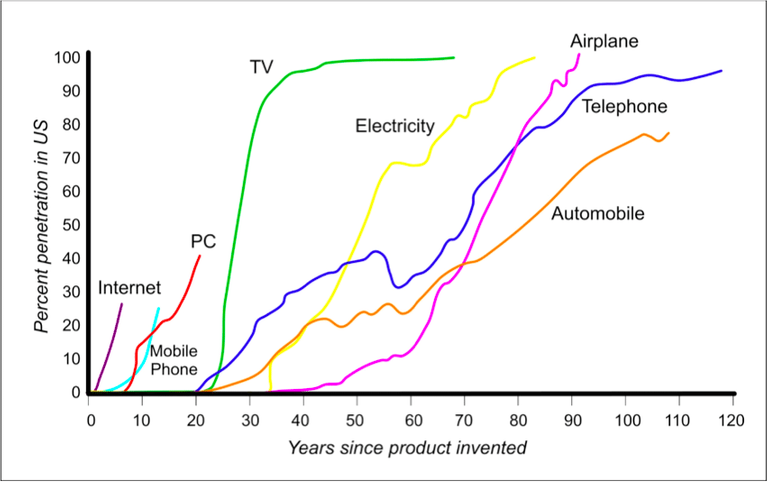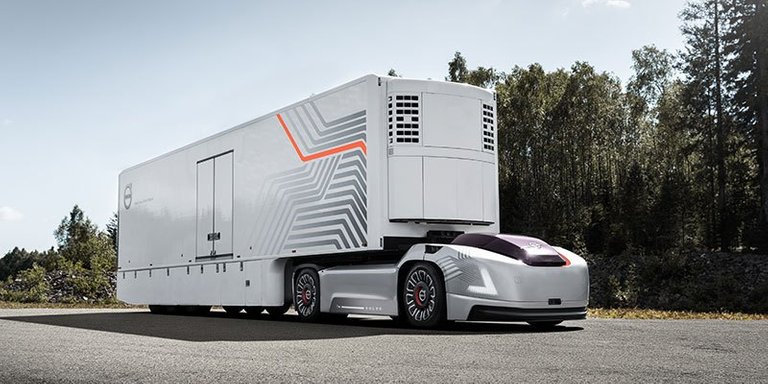2035: The "American Dream" For $250 A Month?
Could we be nearing the end of global poverty? Is it possible that we see, over the next 15 years, the ability to provide everyone with basic levels of sustenance along with some "extras" for minimal money?
No, this is not a topic about universal basic income or governments paying for all that is needed?
This is about technology and the tremendous impact it is going to have on daily life.

Over the past week, I have been posting videos about how different things will be in the middle of the next decade. We are about to embark on a technological explosion that is going to radically alter the basics areas of society. Through the advancement of materials science, IoT, 3D printing, and AI, industries all over the world will be upended. This is going to have quicker than people can image.
We got a glimpse of this over the last 30 years. Until people step back, they do not realize the drastic changes that took place in areas such as computation, communications, music, video, and consumer electronics. Even space, which did not see many breakthroughs over the first 20 years, has realized enormous gains in the last decade.
The tentacles of this same process are expanding.
There are a number of fields were, due to technological advancement, costs will plummet. Other areas, due to the expected progress of digitization and AI, will see changes that provide the same effects.
For example, the area of transportation is getting a lot of attention. Transportation-as-a-Service (TaaS) will be here in a few years. While the likes of Elon Musk get a lot of press, the real breakthrough is happening in the area of trucking. We are seeing a number of companies already utilizing long haul, autonomous trucks to move cargo.

Thus, we see the potential for a drastic reduction in the cost of moving from point A to point B, regardless of whether it is a cargo or a human. Obviously, in the Western countries, transportation, i.e. a car, is one of the largest household expenses. According to Tony Seba, we could see the cost per mile, when all is factored in, drop by 90% by 2030.
Other technologies such as climate controlled farming, precision fermentation, and meats grown from stem cells hold the promise of dropping the cost of food by an even greater percentage. A household that now spends hundreds a month on food could see this be only a few dollars by the middle of the 2030s.
The materials sciences is where most of the interesting action is taking place. We are starting to be able to not only understand, but manipulate the "unseen" world around us. For years, we knew about DNA, electrons, qubits, and photons. Now, we are able to start constructing at the sub-atomic level.
There are many stories about self-healing concrete being brought to market. Over the next few years, this will likely be implemented into our construction process. Naturally, if we can create concrete that heals, the jump to self creating concrete is not far away.
In other words, we are moving towards an era where construction is made up of living organisms that form to a pattern that is coded in. This is the entire premise behind 4D printing.

This is a much different topic of conversation than we hear from our leaders today. In my mind, this shows how disconnected politicians and CEOs are from what is taking place.
Consider what was being discussed around the turn of the century. The big fear was Y2K and the Internet bubble. Greenspan was thinking about "irrational exuberance" while the U.S. government was about to start a two decade run of war mongering.
Nobody was discussing how the world of music production, distribution, and sales were going to be completely upended. Yet, with the introduction of Napster, record companies everywhere started to collapse. The same was true for video. Netflix was a start up and few saw that it was going to take out Blockbuster, Movie Gallery, and anyone else who was renting video content.
Of course, AT&T was still garnering billions in long distance phone service. The idea of cutting the cord was unheard of in the cable industry. In fact, they were still growing their customer bases. At the same time, Kodak was hanging on due to their misstep with the digital camera. The belief was that the Japanese companies like Canon and Ricoh were going to dominate for decades. Few were able to foresee the smartphone.
Today, we are seeing a repeat. There are many who are completely unaware of what is taking place. It is easy to be a naysayer believing that autonomous vehicles will never come into being. The challenge with that is that they are already here. The only thing left to do is to scale the technology to be able to handle all driving conditions. We can see the same with food production. Climate controlled, localized farming is in operation. At this point, they are few and far between. However, over the next decade, that will change.
Only recently did people wake up to the fact that renewable energy is gaining a larger share of the energy produced. This was a trend that was stared decades ago.
We can even point to the fact that cryptocurrency is still being bashed. There was a report that the growth of Bitcoin transactions in a number of African nations grew by over 100%. It does not take too many triple digits gains over a few years before that growth is noticed.
What started out small tends to explode. That is the nature of exponential growth. Today, we are seeing the seeds in many areas of life.
Give it another 15 years, and we will not believe how "outdated" we were in 2020.
If you found this article informative, please give an upvote and rehive.

gif by @doze

Posted Using LeoFinance
Good
its not about take
its about spirit and values
I appreciate your effort
Technology will keep on improving and in next 15 years we might encounter some "outdated" people too that had not embraced the technology. This cycle will go on.
This is an awesome and very informative perspective on the near future. Love it and it sounds very believable.
I'm 38 and it's crazy how much has changed in my life, especially in the second half of it ( and even more in the last couple of years ).
I grew up mainly playing outdoor, then came computers but I still played a lot outdoors. I had a pen(girl)friend in 1997 /98 ( before email ), got a cellphone in 2020, aged 19 ( as my parents wanted to stay in touch when I went to Uni in another town in 2000 ), in that year I also got my first email address ( pretty late ). And then things went fast, although Uni and the decade afterwards, trying to fit in the system distracted me somewhat from technological chances ( aside from those in the film industry ).
I sometimes crave the days before cellphones and daily internet use, but I got technology and especially the blockchain - I started investing in crypto and blogging on Steemit 3 years ago - to thank for my current freedom.
Keep up the good work! Your blogs are extremely insightful.
The least I hope to happen is that the world become a less unequal place for everyone.
All cyber punks want is lazer guns to phase their brethren👌😝 I vote for a solar punk future! Idek how $250 a month would be possible but it sounds like a dream for most Americans.
Well, I'm 100% onboard with your perspective on the march of technology, and how it will change the way pretty much everything is produced. I see it happening, on a daily basis, all around us.
My skepticism sets in at a different level: What I do NOT see happening is the company supplying electricity in 2030 — which might become completely robotic and gets its "raw materials" from the sun — saying "Gee, since it now only costs us 1/2c per KWH to create electricity, we're going to cut your power bill by 75%!" I think we'll still get our monthly $200 power bill, while a small handful of people will pocket the 75% savings as personal profit.
Technology is doing just fine and is changing the world... it's the people and mindset that goes with "Predatory Capitalism" that needs to change, before any of us actually benefit from these emerging technologies...
Of course, that's just my opinion...
Pretty bang on opinion, tbh. If you're one of only a handful of companies given the stamp of approval by the state, you can quietly agree to roll out the savings; but ever so slowly.
The machines will increasingly be autonomous and occupy services that were previously the humans who did. Anxious to see what the world will be like in 5 years, can you imagine in 15? In less than a decade, we will already have many transformations and I hope they will be beneficial for us.
Posted Using LeoFinance
I agree that our future self will look at 2020 as a being a very old fashioned way of doing things. Our planet is not getting bigger while he multiply. So the resources must be well used and new ways of doing what we need must be found and applied. Transportation is a major source of pollution. One person or maximum 4 in a vehicle driving occupy far too much space and pollute. We will advance to means of assuring other ways of transportation which will make driving school and drivers obsolete.Not to mention the human error and the accidents which can be avoided if we change the way we do things. I enjoyed reading this, thanks for sharing!